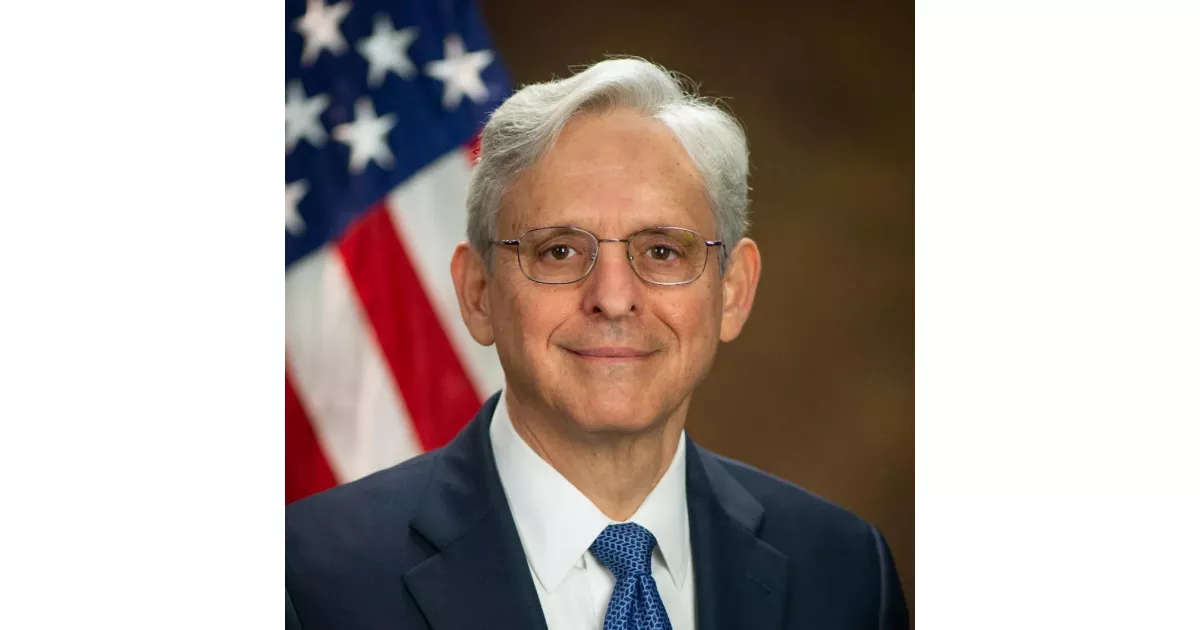Public opinion and media debates around Merrick Garland—discover key moments of controversy.
Merrick Garland is an American lawyer and jurist. He served as the 86th United States Attorney General from 2021 to 2025. Prior to this role, he was a circuit judge on the U.S. Court of Appeals for the D.C. Circuit from 1997 to 2021. Notably, in 2016, President Barack Obama nominated Garland to the Supreme Court, but the Senate declined to hold a confirmation vote on his nomination.
March 2016: Nomination to the Supreme Court
In March 2016, President Barack Obama nominated Merrick Garland to serve as an associate justice of the Supreme Court following Antonin Scalia's death, but the Republican Senate majority refused to hold a hearing or vote on his nomination.
August 2016: McConnell's Boast
In August 2016, McConnell boasted about stopping Garland's Supreme Court nomination.
January 3, 2017: Nomination Expiration
On January 3, 2017, Merrick Garland's nomination to the Supreme Court expired at the end of the 114th Congress, after lasting 293 days without a Senate hearing or vote.
April 2018: McConnell's Reflection
In April 2018, McConnell called the decision not to act upon the Garland nomination "the most consequential decision I've made in my entire public career".
April 2021: Russian Sanctions
In April 2021, Russia imposed sanctions against Garland, including prohibiting him from entering Russia, in retaliation for U.S. actions.
June 7, 2021: Justice Department defends Trump in defamation lawsuit
On June 7, 2021, the Justice Department, under Garland's leadership, continued to defend Trump in a defamation lawsuit filed by E. Jean Carroll. The DOJ argued that Trump's statements denying the rape allegation were made in his presidential capacity and thus he could not be sued. This decision drew criticism and the White House distanced itself from it.
July 26, 2021: DOJ allows testimony from Trump officials
On July 26, 2021, the DOJ sent letters to former DOJ officials of the Trump administration stating that the DOJ would not exert executive privilege over their testimony as witnesses to Trump's attempts to overturn the 2020 election or the January 6 Capitol attack.
July 28, 2021: DOJ rejects request to protect Mo Brooks
On July 28, 2021, the DOJ rejected Rep. Mo Brooks's request to protect him in Eric Swalwell's civil lawsuit against him and Trump. The DOJ determined that Brooks' relevant comments and actions were outside the scope of his official responsibilities as a member of Congress.
October 2021: Memorandum addressing threats against school board members
In October 2021, amid a surge of threats against school board members, Garland issued a memorandum addressing an "increase in harassment, intimidation, and threats of violence" against school officials. The memo directed the FBI and US attorneys to set up meetings with law enforcement leaders.
October 21, 2021: Referral of Steve Bannon to DOJ for contempt
On October 21, 2021, the U.S. House of Representatives voted to refer Steve Bannon to the DOJ for criminal contempt of Congress for defying a subpoena from the January 6 select committee. Garland stated that the Justice Department would apply the facts and the law and make a decision.
February 8, 2024: Release of Hur report on Biden documents
On February 8, 2024, the Department of Justice released a report authored by special counsel Robert Hur into President Biden's handling of classified documents, concluding that charges were not necessary in the incident. The report mentioned perceived problems with Biden's memory and mental acuity.
June 12, 2024: Garland held in contempt by House of Representatives
On June 12, 2024, Garland was held in contempt by the House of Representatives for defying subpoenas and refusing to disclose audio of Hur's interview with Biden. This action was a result of Biden's invocation of executive privilege.
November 2024: Potential Trial Delay
In November 2024, observers believed that indictments obtained by special counsel Jack Smith were not likely to go to trial, which some assigned as partial responsibility to Merrick Garland.
Mentioned in this timeline

Donald John Trump is an American politician media personality and...
Ukraine is a country in Eastern Europe the second-largest on...

Bill Clinton the nd U S President - served as...

Barack Obama the th U S President - was the...

Joe Biden is an American politician who served as the...

The White House located at Pennsylvania Avenue NW in Washington...
Trending

28 minutes ago Clara Tauson Dominates Linette in Dubai, Secures WTA 1000 Quarterfinal Spot

28 minutes ago Pegula Defeats Jovic, Advances to Dubai Quarterfinals; Set to Face Tauson
28 minutes ago Toyota Supra and Lexus LC May Share Platform for Next Generation Models
29 minutes ago Alaska Airlines pilots get shocking pay raises, reshaping network and margins.
29 minutes ago Ramadan 2026 Timetable: Fasting Hours, Suhoor, and Iftar Times Worldwide Confirmed.
1 hour ago Ski Mountaineering to Debut at Milan-Cortina Winter Olympics in 2026.
Popular

Jesse Jackson is an American civil rights activist politician and...
Randall Adam Fine is an American politician a Republican who...

Pam Bondi is an American attorney lobbyist and politician currently...

Barack Obama the th U S President - was the...

Martin Luther King Jr was a pivotal leader in the...

Ken Paxton is an American politician and lawyer serving as...
